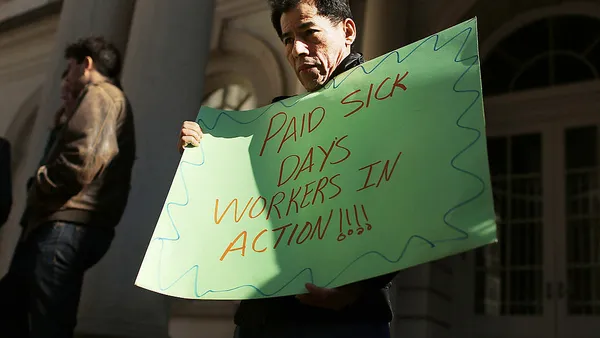Dive Brief:
- A feature report from NPR focuses on how employers can use office space most effectively to boost productivity. Measuring productivity is "tricky" because in modern workplaces, workers are often mobile or work in teams. And work products, like ideas, are often intangible and hard to quantify, according to NPR.
- Humanyze, a startup, is taking an approach CEO Ben Waber calls "Moneyball for business." Clients outfit workers, with their consent, using microphones, accelerometers, and wireless tags that track where they go, who they talk to, and how often. Humanyze then ties all these data sources together and pair them up with things like performance information and information on turnover. The data is then used as feedback both to individuals and to companies so they can actually understand what is making people more effective.
- One of its clients found that software developers who ate lunch in large groups wrote 10 percent more code than those who ate solo or with fewer colleagues. That led to larger lunch tables and more strategic placement of coffee machines.
Dive Insight:
While the concept sounds interesting and may have merit for some employers, not everyone agrees that things like larger lunch tables and open space alone are necessarily going to boost productivity.
Christine Congdon, director of research communications at office design firm Steelcase, told NPR that her company has used video monitoring to study work habits for decades. She notes a recent backlash against open offices.
"If they don't have time to work individually, they fall into groupthink," she says, recommending that employers create private, secluded spaces as well as comfortable places to meet in groups.














